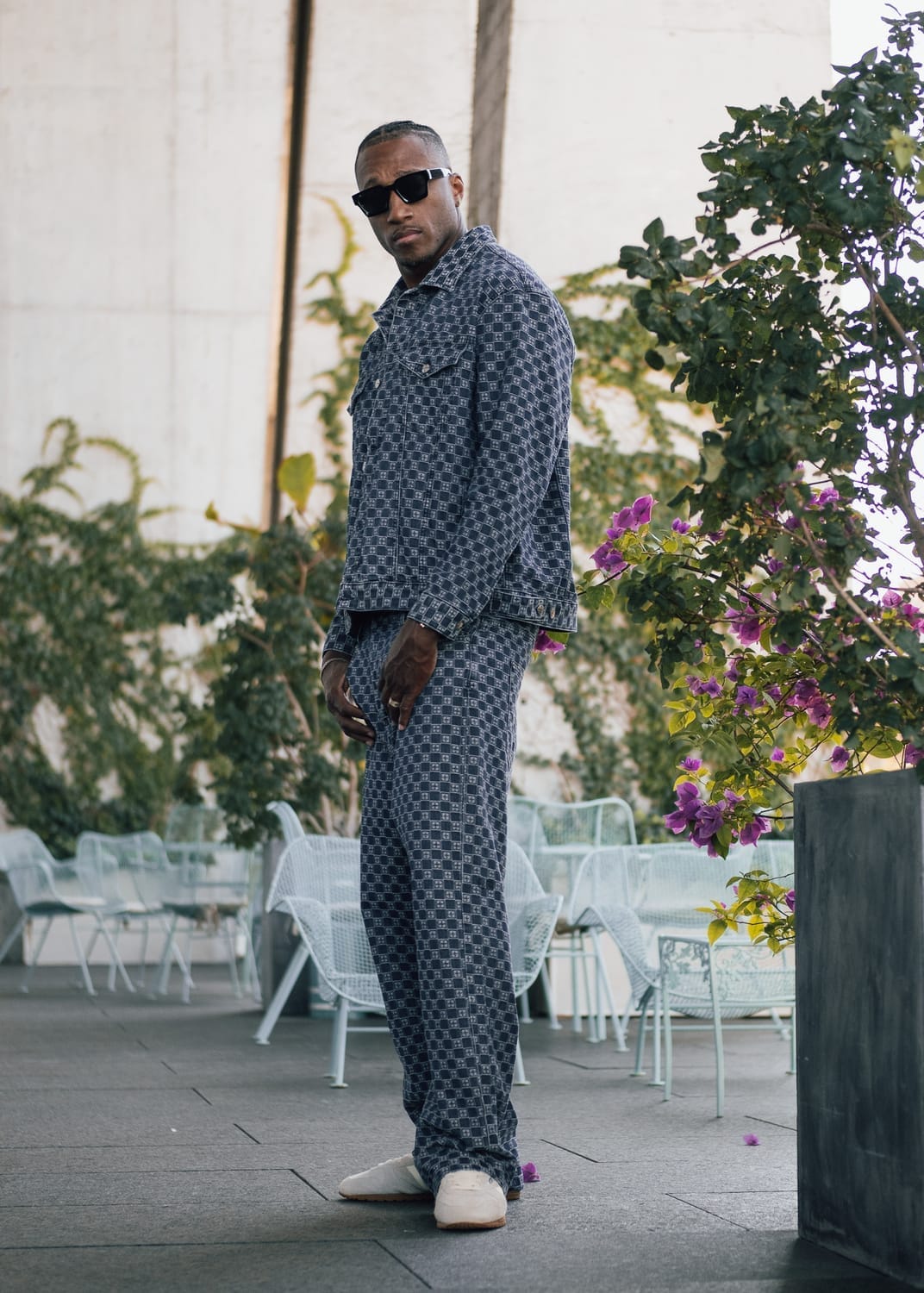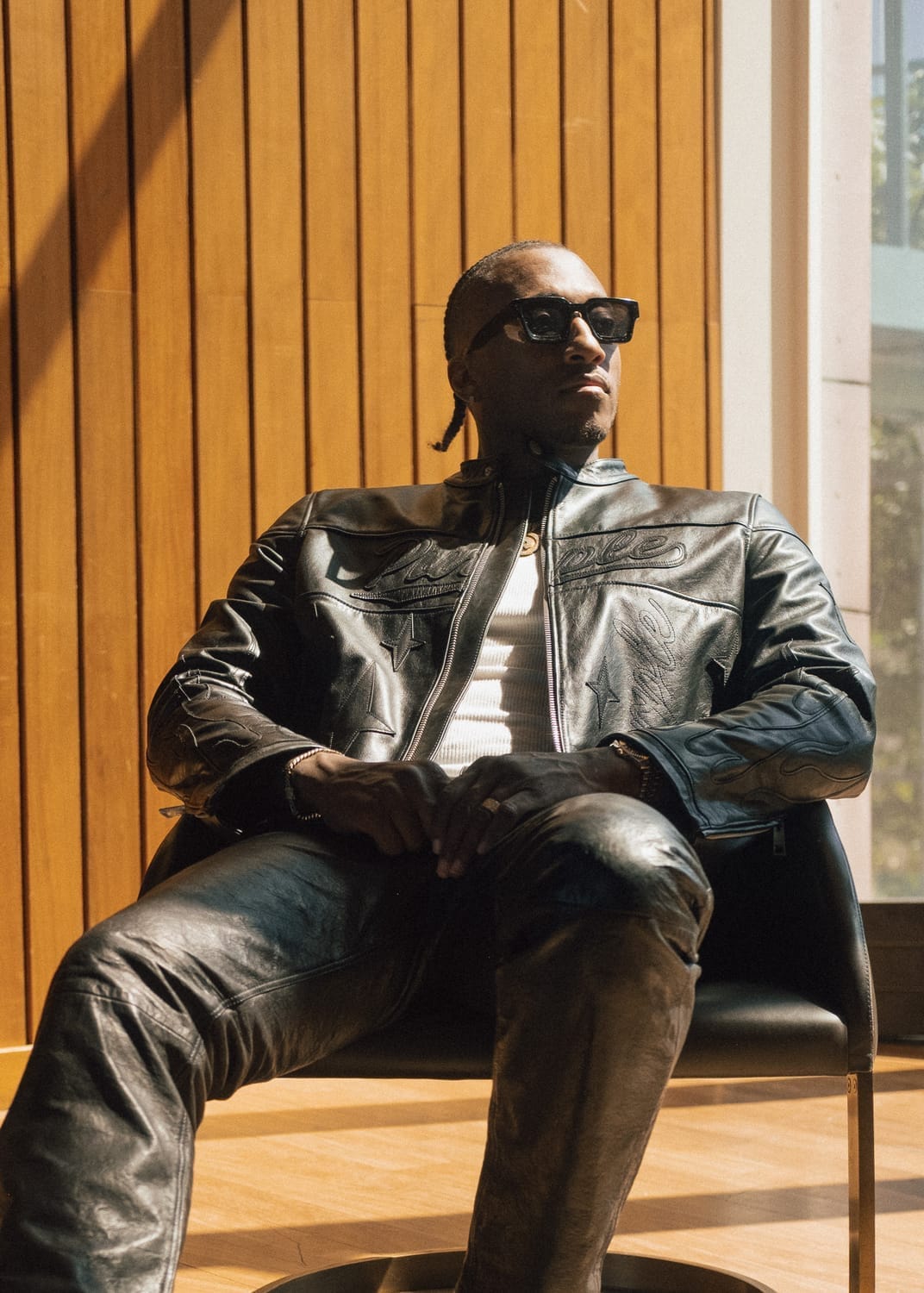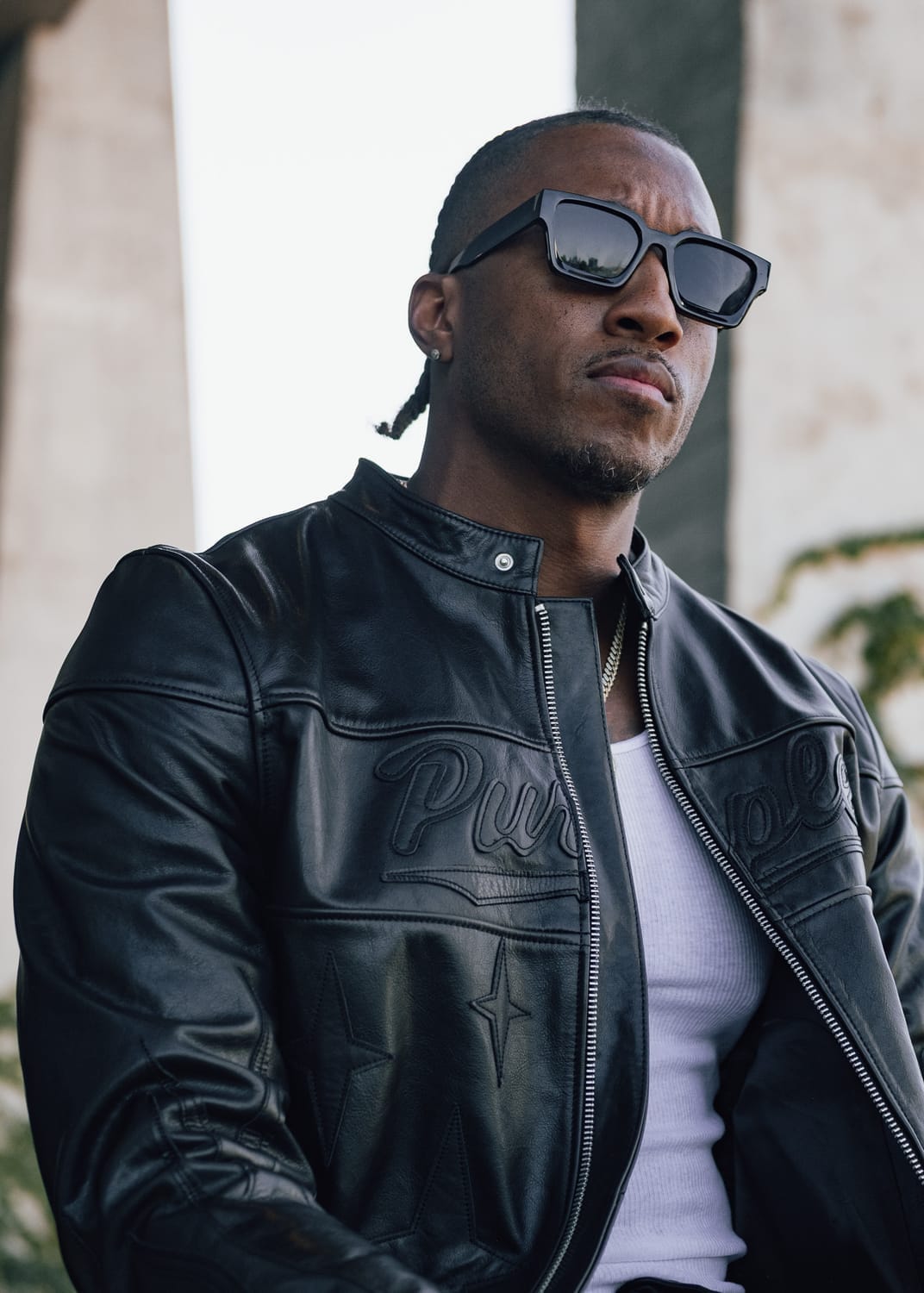Lecrae on Leadership, Faith, and the Art of Reconstruction
written by
JUSTINE SLATER
For nearly two decades, Grammy-winning artist Lecrae has defied categories, blending hip hop and faith with fearless honesty and a commitment to redemptive change.
“A powerful and intimate profile of Lecrae’s journey through healing, leadership and the making of his album “Reconstruction.”

As Lecrae’s journey continues to unfold, we see a man who has endured hardship without being defined by it and celebrated success without being consumed by it. The platinum plaques, the Grammys and the sold-out tours tell one story, but his truth runs deeper. In recent years, he has been rebuilding something more important than a brand. He has been rebuilding himself.“People connect with me in different ways now,”
he says, settling into the chair between takes on set. “Music is one part of how I communicate with the world. They hear me through the podcast and through my writing. The music just adds another layer. It is like a diamond. People see new sides depending on how the light hits.”
The metaphor fits. Lecrae moves as an artist, thinker, father, leader and believer. Each role reflects the others, never separate, always in motion.
On stage, his presence feels like a sermon carried through bass and breath. It is fierce, grounded and commanding. Yet when asked what it means to take the stage “as an ALPHA,” he lets out a quiet laugh before leaning forward.
“The idea of alpha gets twisted,” he says. “Leadership is not barking orders. It is being in the trenches with people. You listen. You guide. You serve. When I am on stage, it is not me against the crowd. We are in it together. I may be standing in front, but I am still part of the collective. I am speaking for all of us.”
The word Alpha has been reimagined across generations. It has been associated with dominance, ego, authority and confidence. For Lecrae, it represents something simpler and more powerful: interdependence.
“People talk about the alpha wolf but forget wolves survive because they depend on each other,” he explains. “It is not about being the strongest. It is about understanding how to move together. Real leadership is walking with people, not pushing them from afar.”
He takes a moment. “I have been on a journey. The music is influenced by the journey of the man.”
He reflects on a moment that changed him. “A sixty-five-year-old man once said to me, ‘I have been your age before, but you have never been mine.’ That stayed with me. It made me realize that I am standing in places some people have not reached yet. But I have also walked through places they are in right now. So how can I use that to help? And God has been everywhere I have not. So I am always trying to hear Him as I figure out my next steps.”
For Lecrae, faith is not a performance. It is a process. It is the space between doubt and surrender where his most personal work lives.



A quiet confidence threads through everything he does. You can hear it in how he speaks about God. You see it in how he carries himself. You even notice it in how he dresses on stage. There is no separation between style and spirituality. Both express truth. Faith shapes the art. The art shapes the identity.
“I want what I wear to reflect who I am,” he says. “Thoughtful. Creative. Never loud just to make noise.”
He admits that fashion even impacts the performance. “People look at me and see an elevated version of where they want to go. Style plays into that. It is relatable, but aspirational. It feels like me.”
Staying relatable, however, has become a quiet mission of his. While many artists polish their image to perfection, Lecrae chooses to show the human reality. His latest project, Reconstruction, is built around that idea.
“Reconstruction is about rebuilding,” he says. “It is the belief that we are not wasted material. No matter what your past looks like, you are not thrown away.” He pauses, searching for the right image. A smile settles in. “It reminds me of Michelangelo and the statue of David. He used discarded marble. Stone that other artists said was worthless. He turned it into something the world still marvels at. That is what Reconstruction is.”
The industry has taken notice. Lecrae’s newest era arrived with renewed recognition, including two Grammy nominations. One for Best Contemporary Christian Music Album for Reconstruction. Another for Best Contemporary Christian Music Song and Performance for “Headphones,” his collaboration with Killer Mike and T.I. These nominations highlight not only his artistic evolution but the weight and honesty of the stories he is choosing to tell.
“I want my music to be a soundtrack for people’s lives,” he says. “Something that helps them process what they are feeling. My journey with God gives me direction. Some people hear my music and think, that is my experience too. Others say, if you made it through, maybe I can make it through. Whether it is relationships or health or healing, that is the goal.”


For Lecrae, faith and artistry are not separate pursuits. They are two languages communicating the same truth. Broken things can still be beautiful. Incomplete things can still be meaningful. Pain can become material for something redemptive.
“I want people to see me as a bridge between the church and the world,” he says, his voice steady and sincere. “Some people burn bridges. I am willing to be one. Even if people throw trash across it. Even if it gets covered in graffiti. Because if someone needs to cross, and I helped them get there, then it was worth it.”
Because at the end of the day, if someone needed to cross and I helped them get there, then it was worth it.”
YOU MIGHT ALSO LIKE
RESOURCES
LOS ANGELES, CA
